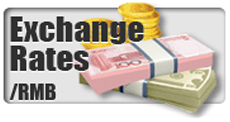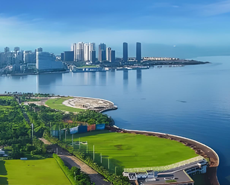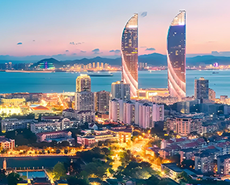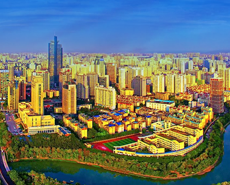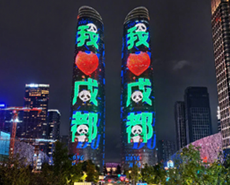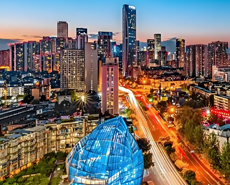T.I.C.: the global trade association for tantalum and niobium
----interview with Roland Chavasse, Director at the Tantalum-Niobium International Study Centre
An international, non-profit association founded in 1974 under Belgian law.
Around 90 member companies from 25 countries involved with all aspects of the tantalum and niobium industry supply chain (mining, trading, processing, metal fabrication, capacitor manufacturing, recycling, other end-users such as medical, aerospace...)
Managed by an Executive Committee representing all segments of the industry.
Asian Metal: Hello, Mr Roland Chavasse, thank you for accepting this interview. First, could you please give us a brief introduction to the T.I.C.?
T.I.C.: The Tantalum-Niobium International Study Center (T.I.C.) was established in 1974 as an international, non-profit association registered in Belgium. Today we have around 90 member companies from 25 countries involved with all aspects of the tantalum and niobium industry supply chain, from mining and trading to smelting and processing, metal fabrication, capacitor manufacturing, recycling, and also other end-users such as the medical and aerospace industries. The T.I.C. is managed by an Executive Committee elected from the membership at our General Assembly each year. Many people know us from visiting our website www.TaNb.org or from the Bulletin, our free quarterly newsletter that carries news and articles about our work and the tantalum and niobium industries.
Asian Metal: Could you tell me more about the General Assembly?
T.I.C.: Our General Assembly is formed from the annual general meeting of members and our technical conference. We also have a site visit such as a factory tour or mine visit and last year in Malaysia we visited he smelter of Malaysia Smelting Corporation. The General Assembly attracts delegates from all over the world and from every aspect of the tantalum and niobium industries. This year we will be in Toulouse, France, from October 16th to 19th and our field trip is to the Airbus factory where the A380 is assembled.
Asian Metal: The Airbus factory? What is the relevance there to tantalum and niobium?
T.I.C.: Tantalum and niobium are two very special elements with unique properties and their use underpins many aspects of modern technologies, including passenger aircraft. The aircraft itself will contain significant quantities of tantalum capacitors in its electronics and niobium in structural high-strength low-alloy (HSLA) steels, as would most passenger cars and other everyday items. However, in an aircraft the really critical application for tantalum and niobium is in the superalloys used mainly in the gas-turbine engines. As I’m sure your readers know, superalloys are among the most complex alloy metals ever developed, containing a multiplicity of alloying elements which combine to produce materials with specific properties. Superalloys are high melting, high strength and extremely wear-resistant alloys that are not attacked in oxidizing and corrosive environments such as the hottest part of a jet engine.
Asian Metal: Thank you, that is very interesting. Aside from General Assemblies what else does the T.I.C. work on?
T.I.C.: Issues of supply chain due diligence are central to the T.I.C.’s work, not surprisingly for such an important topic. In the late 2000s T.I.C. worked on developing a due diligence process and in 2011 we became a partner on the iTSCi Programme (the ITRI Supply Chain Initiative) which operates a traceability scheme in Rwanda, the DRC, Burundi and Uganda. The iTSCi Programme is not the only such scheme in the Great Lakes Region, another is the T.I.C. member company Better Sourcing Program (BSP), but iTSCi is the largest and accounts for the significant majority of 3T minerals exported from Rwanda and the DRC. Closely linked to this work is our involvement on proposed legislation concerning conflict minerals and critical raw materials.
Another important aspect of T.I.C.’s work is the transport of naturally occurring radioactive materials (NORM). This subject is one of the key tasks undertaken by our dedicated Technical Officer. Last month we appointed a new Technical Officer, Mr David Knudson, who is a chemical engineer by training and has been in the tantalum industry for over 30 years. David brings a wealth of technical knowledge and experience to the role and is greatly looking forward to meeting T.I.C. members at the conference in Toulouse next month.
Asian Metal: How does a company join the T.I.C.?
T.I.C.: Any organisation involved in the global tantalum or niobium industries can apply to join the T.I.C. as either corporate or associate members, the latter category is for non-commercial organizations such as government bodies, NGOs and academics.
The main requirement for a corporate applicant company is that their application has the support of two existing T.I.C. members who can vouch for the applicant. Once we receive their completed application form (available on our website) the Executive Committee will consider it and then put it forward to the members at the next general meeting. To become a corporate member costs EUR 2400 per year, while for associate members it is EUR 350 per year.
Asian Metal: What is expected from members of the T.I.C.?
T.I.C.: Although the T.I.C. is not a policing body various policies have been adopted by the members over the years. Currently we have an Artisanal and Small-scale Mining Policy (ASM Policy) and a Transport Policy which respectively promote best practice in sourcing and transportation of tantalite and columbite materials. At the General Assembly next month our members will be asked to consider agreeing to an anti-trust policy and replacing the ASM Policy with a more advanced ASM Code of Conduct. These important developments will ensure that the T.I.C. maintains its position of leadership.
The one requirement we do insist on from members is that they submit their trade data to a fully independent third party, a chartered accountant (the T.I.C. has no access to the raw data at all). Each quarter members submit their data and this is aggregated and anonymized before being fed back to members as a report giving total figures for each of the categories of data we collect. Our independent legal consul takes great care to ensure no anti-competitive information is included in the T.I.C.’s statistics service.
Asian Metal: Thank you for your time.
T.I.C.: It’s been a pleasure. Please visit our website for more information and don’t forget to sign up for our free quarterly newsletter.

